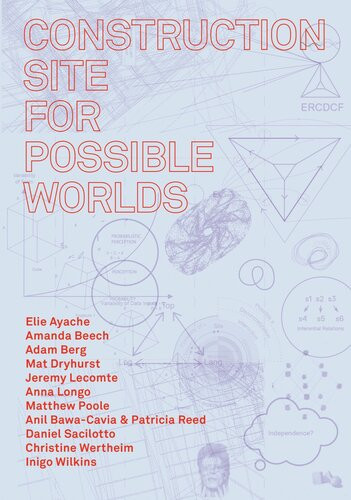

Most ebook files are in PDF format, so you can easily read them using various software such as Foxit Reader or directly on the Google Chrome browser.
Some ebook files are released by publishers in other formats such as .awz, .mobi, .epub, .fb2, etc. You may need to install specific software to read these formats on mobile/PC, such as Calibre.
Please read the tutorial at this link: https://ebookbell.com/faq
We offer FREE conversion to the popular formats you request; however, this may take some time. Therefore, right after payment, please email us, and we will try to provide the service as quickly as possible.
For some exceptional file formats or broken links (if any), please refrain from opening any disputes. Instead, email us first, and we will try to assist within a maximum of 6 hours.
EbookBell Team

4.3
8 reviewsPerspectives from philosophy, aesthetics, and art on how to envisage the construction site of possible worlds.
Given the highly coercive and heavily surveilled dynamics of the present moment, when the tremendous pressures exerted by capital on contemporary life produces an aggressively normative “official reality,” the question of the construction of other possible worlds is crucial and perhaps more urgent than ever.
This collection brings together different perspectives from the fields of philosophy, aesthetics, and art to discuss the mechanisms through which possible worlds are thought, constructed, and instantiated, forcefully seeking to overcome the contemporary moment's deficit of conceptualizing alternate realities―its apparent fear of imagining possible new and compelling futures―to begin the arduous task of producing the political dynamics necessary for actual construction.
Implicit in this dynamic between the imaginary and the possible is the question of how thinking intertwines with both rationality and the inherited contingencies and structures of the world. With no ascertainable ground on which to build, with no confidence in any given that could guarantee our labors, how do we even envisage the construction site(s) of possible worlds, and with what kind of diagrams, tools, and languages can we bring them into being?